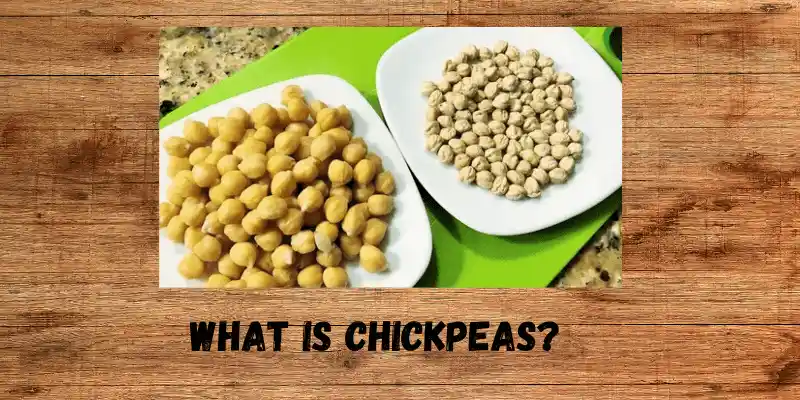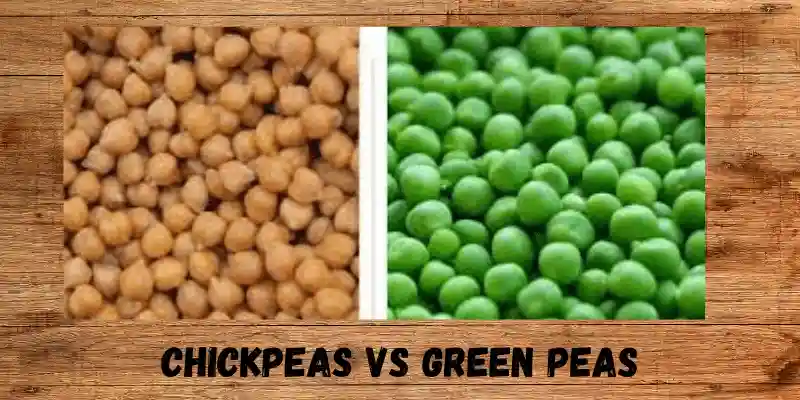A Comprehensive Guide on Can Ducks Safely Eat Chickpeas in Diet?
Updated: 02 Mar 2024
1138
When pondering the question, “Can ducks eat chickpeas?” the answer leans towards the affirmative. Chickpeas, also known as garbanzo beans, are a safe and nutritious treat for ducks when prepared correctly.
As a high-protein legume packed with vitamins like B6, B1, and folate, chickpeas offer a healthier alternative to traditional duck snacks. However, it’s crucial to acknowledge the presence of anti-nutritional factors in raw chickpeas, such as lectins, which can negatively affect nutrient absorption in the digestive tract.
To incorporate chickpeas into a duck’s diet safely, they should replace only 15-20% of the total diet, considering ducks are omnivorous creatures with a varied diet of plants, animals in the wild (like aquatic plants, small fish, insects, and crustaceans), and domestic feeds (like pellets and mealworms).
The chickpeas must be cooked to ensure the toxic lectins disappear, making them a safe addition. Feeding ducks raw chickpeas is not advisable due to these toxic substances.
Instead, offering cooked chickpeas in moderation ensures they reap the benefits of this nutritious legume without any adverse effects on their health.
Can Ducks Eat Chickpeas?
In the fascinating world of duck nutrition, the question of whether ducks can safely include chickpeas in their diet garners increasing interest. These adorable, quacking waterfowl that waddle around ponds, lakes, and rivers are part of the Anatidae family, known for their versatile diets.
Their natural inclination towards aquatic plants, insects, and small fish highlights their ability to adapt to various dietary options. This article aims to delve into exploring alternative dietary options for ducks, particularly the inclusion of chickpeas.

Chickpeas, a rich source of essential nutrients such as protein, fiber, vitamins, and minerals, can indeed benefit ducks when introduced properly into their diet. Yes, ducks can eat chickpeas as part of their diet without any negative consequences, provided these are included safely and beneficially.
It’s crucial to ensure that chickpeas are incorporated as a safe, beneficial part of their diet, avoiding any potential negative consequences. Through exploring and including chickpeas, we can provide a rich source of essential nutrients to ducks, enhancing their overall health and vitality.
What Are Chickpeas?
Chickpeas, a type of legume, are not just a staple in Mediterranean cuisines but also a powerhouse of nutrition.
Rich in protein, they support duck development, aiding in growth and egg production. In 100gr of raw chickpeas, you’ll find 6gr of fat, 10.7gr of sugars, and 12.2gr of dietary fiber, along with vitamins B1, B5, B6, and B9 (folate), making them a healthy choice.
They are also packed with essential minerals like Copper, iron, magnesium, phosphorus, and zinc, offering numerous health advantages for ducks when included in their diet. Often used in humus, these legumes bring a diverse range of nutrients to the table.
Difference Between Chickpeas and Green Peas:
While chickpeas and green peas may appear similar, they possess significant differences, especially in terms of fat content and nutritional profile.
People are constantly comparing these two legumes, noting that green peas have a slight edge in niacin content, with a raw pea winning the race with 2.09 mg of B3 vitamin (niacin) compared to chickpeas’ 1.54 mg.

Despite these differences, it’s essential to understand that both can have a positive effect on ducks if fed in moderation. However, feeding too much can be counterproductive, affecting their nutrient absorption and overall health.
Can Ducklings Eat Chickpeas?
When it comes to ducklings, their dietary needs differ significantly from mature ducks. While cooked chickpeas are not harmful to them, it is essential to ensure the legumes are soft and easy to digest.
Before giving chickpeas to ducklings, it’s best to mash them and mix them with their regular feed. This preparation makes chickpeas a safe and nutritious addition to their diet, helping in their development without risking their health.
Nutritional Benefits of Chickpeas for Duck:
Chickpeas, a staple in human diets, are not only a hearty source of protein but also bring a multitude of benefits to ducks.
This rich, essential nutrient plays a critical role in the growth, repair, and maintenance of tissues, significantly supporting muscle development and overall body function.
Such nutritional support is indispensable for ducks, aiding their active lifestyle, whether it involves paddling in ponds or taking flight.
The vitality and energy derived from a protein-rich diet ensure that ducks maintain strong muscles and an eagerness for their daily activities.
Moreover, chickpeas are loaded with high fiber content, which promotes a healthy gut environment and proper bowel movements.
This aspect of chickpea nutrition is essential in preventing digestive issues and ensuring that ducks have a well-functioning digestive system.
The dietary fiber in chickpeas aids in maintaining this balance, crucial for ducks to extract all the necessary nutrients from their food and stay in tip-top shape.
Additionally, the complex carbohydrates found in chickpeas provide a steady and sustained energy release throughout the day, supporting ducks in their active foraging, swimming, and socializing within their flock.
Chickpeas also offer a variety of vitamins and minerals, including vitamin A, C, and B vitamins, along with iron, magnesium, potassium, and zinc.
These nutrients are critical in supporting the immune system, vision, skin health, and metabolism, as well as contributing to the bone and nerve function and overall well-being of ducks.
Furthermore, being a low-fat option, chickpeas represent a healthier treat compared to other snacks. The presence of Omega-3 Fatty Acids in chickpeas, known for their heart-healthy and anti-inflammatory properties, adds another layer of nutritional value.
This combination of nutrients can not only contribute to a duck’s vibrant and glossy plumage but also ensure they feel good and look the part, with bright eyes and a shiny coat of feathers.
| Other Ducks Behavior: |
|---|
|
Why Is My Duck Falling Over? |
How To Feed Chickpeas To Ducks:
Soaking chickpeas overnight is a crucial first step in making them safe for ducks to eat, as it helps to reduce the lectin content, making the chickpeas softer and easier to digest. It’s important to discard the soaking water to remove any leached lectins.
Given that ducks have small beaks, this softer texture is particularly beneficial, making chickpeas more manageable for them to eat. After soaking, cooking the chickpeas for at least 30 minutes further reduces their lectin content, ensuring they are safe for duck consumption.
When preparing chickpeas for ducks, it’s essential to avoid salt, spices, or any additives that could be harmful, ensuring the chickpeas are plain and free from seasonings that ducks find difficult to digest.
Practicing portion control is also key; chickpeas should be considered a treat and given in moderation. A handful of chickpeas is sufficient for a small group of ducks, and it’s advisable to offer them in bite-sized pieces to avoid choking hazards and make it easier for ducks to consume.
For ducklings, mashing the chickpeas can make them even easier to consume and digest, accommodating their different dietary needs.
Lastly, always provide water when feeding chickpeas or any other food, as water aids in digestion. Ensuring that ducks have access to clean water whenever they are offered chickpeas or any other food is essential for their well-being.
This comprehensive approach to feeding chickpeas ensures that ducks can enjoy the nutritional benefits of this legume safely and happily.
Conclusion:
Feeding ducks chickpeas can be a nutritious addition to their diet when done correctly. By soaking and cooking chickpeas to reduce lectin content.
Offering them in moderation, mashing them for ducklings, and ensuring clean water is always available, ducks can safely enjoy the health benefits of this legume.
This careful approach ensures that ducks receive a balanced and beneficial treatment without compromising their health.

Please Write Your Comments